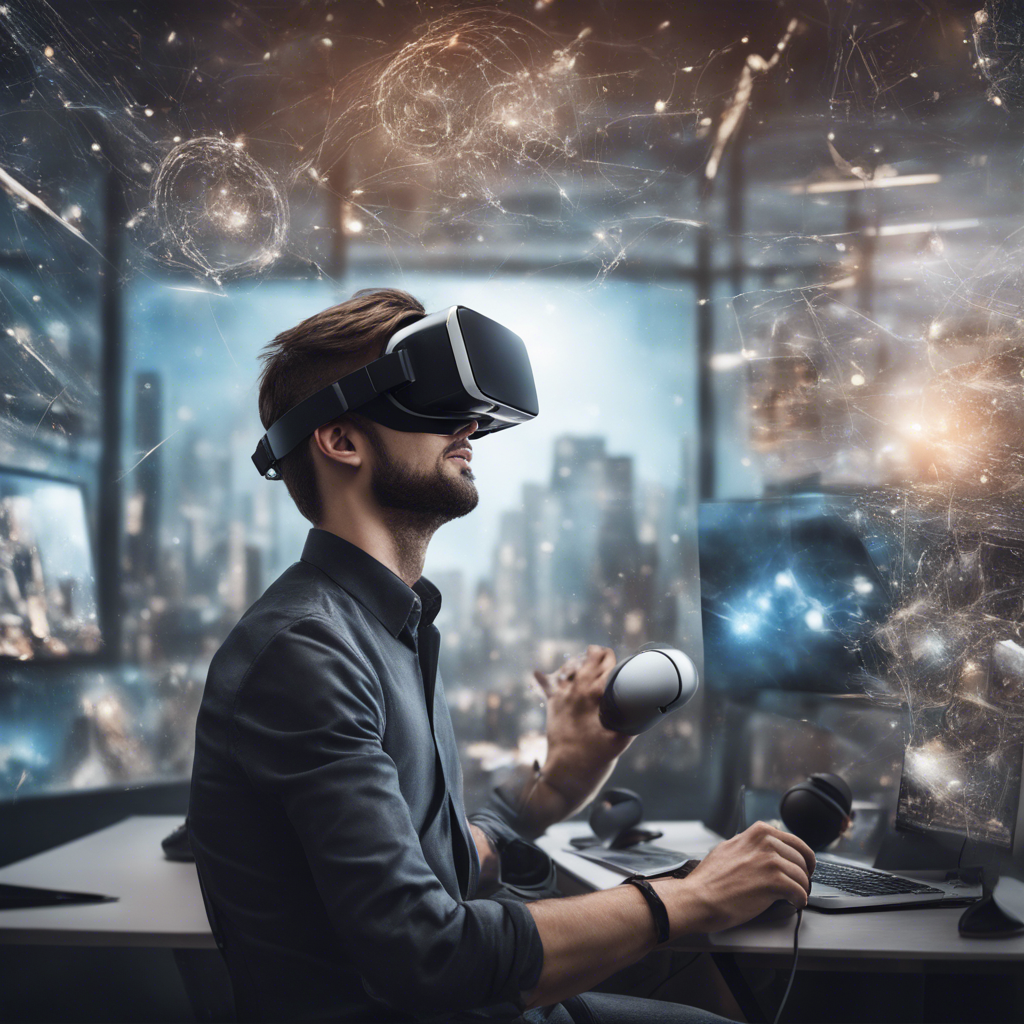
How Virtual Reality is Transforming Entertainment and Work
In recent years, virtual reality (VR) has emerged as a groundbreaking technology that is revolutionizing both the entertainment and work industries. With its immersive and interactive capabilities, VR has the potential to transform how we experience entertainment and conduct work-related activities. In this blog post, we will delve into the various ways in which virtual reality is reshaping these sectors, providing a detailed analysis supported by reputable references.
Transforming Entertainment Industry
1. Immersive Gaming Experience
Virtual reality has significantly enhanced the gaming industry by offering users a truly immersive and realistic gaming experience. By putting on a VR headset, players are transported into a virtual world where they can interact with the environment and experience games in a way that traditional gaming cannot replicate.
Reference: According to a report by Statista, the global virtual reality gaming market is projected to reach $45.09 billion by 2027.
2. Virtual Concerts and Events
Virtual reality has also revolutionized how concerts and events are experienced. With VR technology, individuals can attend live concerts and events from the comfort of their homes, providing a more accessible and engaging experience for audiences worldwide.
Reference: The New York Times reported a significant increase in virtual events attendance during the COVID-19 pandemic, showcasing the growing popularity of virtual entertainment experiences.
3. Immersive Storytelling
VR has opened up new possibilities for immersive storytelling, allowing creators to transport audiences into their narratives in a more profound and engaging way. Through 360-degree videos and VR experiences, storytelling becomes more interactive and captivating.
Reference: A study published in the Journal of Computer Information Systems highlights the effectiveness of VR in enhancing narrative engagement and user experience.
Impact on Work Environment
1. Virtual Meetings and Collaboration
Virtual reality is transforming the way businesses conduct meetings and collaborate remotely. With VR platforms like Spatial and MeetinVR, teams can meet in virtual spaces, interact with 3D models, and foster better collaboration regardless of geographic locations.
Reference: A survey by PwC revealed that 67% of CEOs believe that virtual collaboration tools are here to stay and will become an essential part of the post-pandemic work environment.
2. Training and Simulations
VR technology has proven to be invaluable in training employees across various industries. From medical simulations to technical training, VR provides a safe and realistic environment for hands-on learning, improving skill retention and reducing training costs.
Reference: Research conducted by Deloitte Insights showcases the effectiveness of VR in training scenarios, with participants showing increased confidence and performance in simulated environments.
3. Virtual Workspaces
Virtual reality is enabling the creation of virtual workspaces where employees can collaborate, brainstorm, and work together in a virtual setting. Platforms like Spatial and VRChat are redefining remote work by providing immersive spaces for teams to interact and be productive.
Reference: The Harvard Business Review highlights the benefits of virtual workspaces in fostering creativity, engagement, and connectivity among remote teams.
Conclusion
Virtual reality is a transformative technology that is reshaping both the entertainment industry and the work environment. From immersive gaming experiences to virtual meetings and training simulations, VR is enhancing user experiences and unlocking new possibilities for creativity and collaboration. As the technology continues to evolve, it will be fascinating to witness how virtual reality further revolutionizes these sectors, creating innovative solutions and immersive experiences for users worldwide.
Incorporating virtual reality into entertainment and work environments can lead to increased engagement, productivity, and creativity, ultimately shaping the future of how we interact with technology and each other. The possibilities with VR are limitless, and the impact it has already made is a testament to its potential in transforming various aspects of our lives.
Disclaimer: The statistics and research findings mentioned in this blog post are based on reputable sources and studies. However, readers are encouraged to conduct further research and analysis to deepen their understanding of the subject matter.



